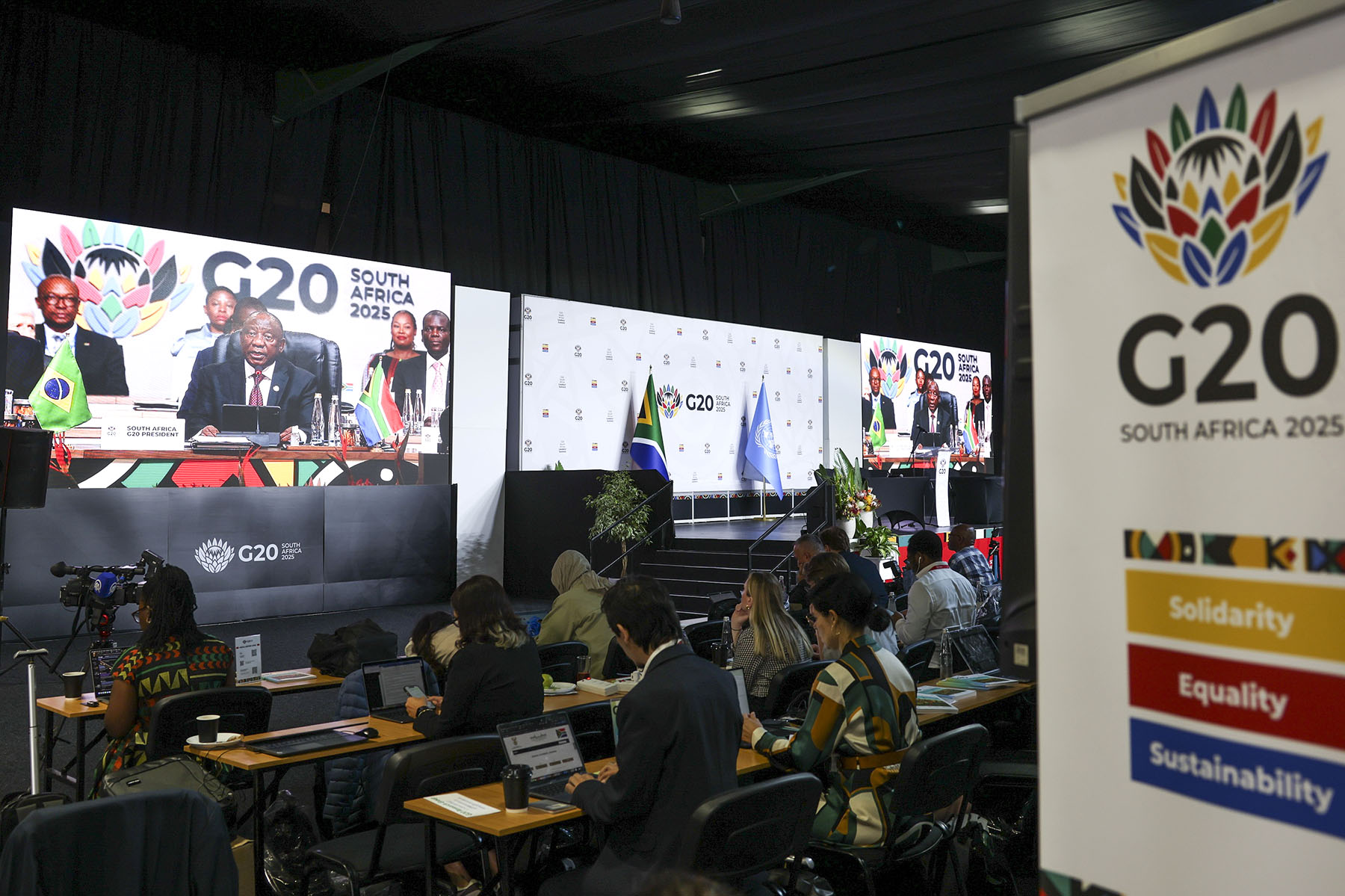1st G20 summit in African continent adopts declaration despite US boycott

World leaders convened the first-ever G20 summit on African soil over the weekend with a decisive show of unity, adopting a sweeping 122-point declaration despite a boycott from the United States to derail the outcome.
Host South African President Cyril Ramaphosa emphasized that his presidency has worked to ensure the development priorities of the Global South, and the African continent in particular is firmly and permanently embedded in the G20 agenda.
"This is important not only for the people of Africa and the Global South. The G20 underscores the value and relevance of multilateralism," he said.
READ MORE: G20 leaders reach consensus on global challenges in declaration
"We should not allow anything to diminish the value, the stature or the impact of the first African G20 Presidency," Ramaphosa said while delivering his opening remarks at the high-level meeting in Johannesburg on Saturday.
He challenged the world leaders that they have a responsibility not to allow the integrity and credibility of the G20 to be weakened.
"We have sought at all times to preserve the integrity and stature of the G20, a premier forum of international economic cooperation," he stated.
The South African president noted that over 130 meetings were held across Africa to ensure the summit reflected the continent's voice, with his presidency focusing on the theme of "solidarity, equality and sustainability" and elevating issues long sidelined in G20 deliberations.
The declaration warns that increasingly frequent and intense disasters and shocks are undermining development and overstretching response systems. Leaders said they "hinder progress toward sustainable development and strain both national capabilities and the international system's ability to respond".
The leaders agreed that the global community, international financial institutions, development banks and the private sector should scale up post-disaster reconstruction efforts and ensure debt sustainability for low-income countries, reinforcing support for vulnerable economies.
Energy access and transition also featured prominently. The declaration underscores stark inequalities, noting that "over 600 million Africans have no access to electricity".
Energy efforts
The leaders supported efforts to triple global renewable capacity and double energy-efficiency improvements by 2030, emphasizing the urgency of mobilizing scaled-up investment and facilitating low-cost financing for developing countries in line with national circumstances. They also highlighted the importance of voluntary technology transfer "on mutually agreed terms".
The declaration highlighted the strategic importance of critical minerals, stressing that their beneficiation at the point of extraction is essential for inclusive growth and sustainable development. Beneficiation is the treatment of raw materials to improve their physical or chemical properties.
The leaders further prioritized inclusive economic growth, industrialization, inequality, employment, food security and artificial intelligence.
Speaking on the sidelines of the summit, Vincent Magwenya, Ramaphosa's spokesperson, told reporters that the US lobbied capitals "at the eleventh hour", asking them to withhold their support.
"It was going to be difficult for the US to put forward a convincing argument, to member countries to abandon that responsibility just because it has a bilateral diplomatic tiff with South Africa," he stated.
The US has boycotted this summit, refusing to participate in it on the pretext of the widely discredited allegations that the white minority in South Africa is being persecuted.
South African Minister of International Relations and Cooperation Ronald Lamola noted as strange the boycott of the event by the founding member of G20 due to the escalation of a diplomatic dispute.
ALSO READ: Energy cooperation with China to boost Africa's green transition
"A bilateral issue between South Africa and the US must not in any shape or form undermine or imperil the work of the G20," he said.
The Saturday declaration, adopted at the very start of the summit, also lacked Argentina's support, as it opted to step aside amid the escalating diplomatic tensions between the United States and South Africa.
Argentina's Foreign Minister Pablo Quirno, who represented Argentina at the event, emphasized the country's continued commitment to the cooperative spirit that has guided the G20 since its inception.
Zane Dangor, South Africa's director-general of the Department of International Relations and Cooperation, however confirmed that it will fully participate and advance its priorities within the forum when the US takes over the G20 presidency next year.
Xinhua contributed to this story.
Contact the writers at victor@chinadailyafrica.com


